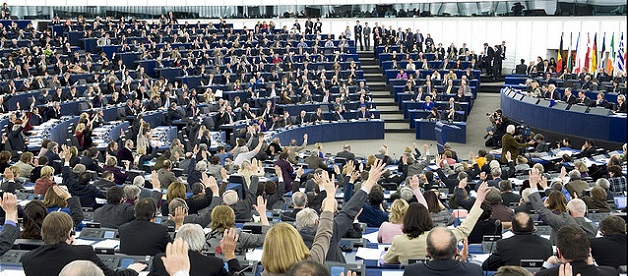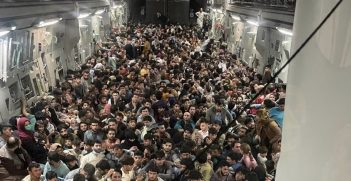EU Enlargement: A Substantial Success

The enlargement of the European Union in 2004 marked the end of the artificial division of Europe by the Cold War. It also had a lasting economic and political impact, both internally and internationally.
2014 is an important year for Europeans. It marks the centenary of World War I, 75 years since the end of World War II in Europe, the 25th anniversary of the fall of the Berlin Wall and the 10th anniversary of the historic European Union (EU) 2004 enlargement to the countries of Central and Eastern Europe, as well as Malta and Cyprus.
All of these events have had a deep impact on Europe and beyond.
History
The historical roots of the EU lie in the two successive world conflicts of the first half of the 20th century. In 1951, determined to prevent another horrific war, six European countries (Belgium, Germany, France, Italy, Luxembourg and the Netherlands) agreed to the proposal of the French Foreign Minister Robert Schuman to pool coal and steel production which – in the words of his 9 May 1950 Declaration – would make war between the historic rivals France and Germany “not merely unthinkable, but materially impossible”. They believed – correctly – that merging their economic interests would be the first step towards a more united Europe. It was an idea whose time had come and before long six other European countries – joined the founding Members (1973 – Denmark, Ireland, UK; 1981 – Greece; 1986 – Spain and Portugal). It was the Fall of the Berlin Wall, 25 years ago, that was the catalyst for an all-embracing European order with the accession of Austria, Finland and Sweden in 1995. In 2004 the historic fifth enlargement saw eight central and eastern European countries (Czech Republic, Estonia, Latvia, Lithuania, Hungary, Poland, Slovakia, Slovenia) as well as the Mediterranean countries of Cyprus and Malta join the EU. The accession of Bulgaria and Romania in 2007 formally completed this fifth enlargement.
For the EU, this enlargement marked the end of the artificial division of Europe by the Cold War. It also had a lasting economic and political impact, both internally and internationally.
Economics
Economically – with the EU now comprising 28 Member States (with the accession of Croatia in 2013) and over 507 million citizens – enlargement made the EU the world’s biggest single market. Trade grew almost threefold in less than 10 years preceding the 2004 and 2007 enlargements and fivefold among the new members themselves. Central and Eastern Europe grew on average by 4% annually in the period 1994-2008 and it is estimated that the access process itself contributed almost half of this growth. Foreign direct investment from the rest of the world to the EU has doubled as a percentage of GDP since accession from 15.2% of GDP in 2004 to 30.5% of GDP in 2012. EU GDP is now 23% of world GDP, amounting to €12.6 trillion compared to the 14.2% in 1956 of the six founding countries.
Politics
Politically, enlargement reunited Europe after years of its artificial division during the cold war, bringing peace and stability within Europe and beyond. The EU remains the most successful peace project in the world and this was recognised by the Nobel Committee when it awarded the Nobel Prize for Peace to the EU in 2012. Its gravitational pull remains a key stabilising factor in our continent. This is especially important in the Western Balkans, a region so recently scarred by conflict. The historic agreement between Serbia and Kosovo to normalise relations, allowed the EU to open accession talks with Belgrade and begin discussions on a stabilisation and association agreement with Pristina. The current enlargement agenda is an evolving process with other countries, including Turkey, negotiating the terms of their accession with the EU.
Internationally, the EU has increasingly pulled its weight in terms of crisis management, conflict resolution and peace building. Using a “comprehensive approach”, spanning the fields of diplomacy, security, defence, finance, trade, development and humanitarian aid, the EU has undertaken civilian and military missions around the world, such as in Somalia, Mali, the Congo, Libya, Syria, Myanmar, Afghanistan, to name a few. Sometimes the EU’s role on the global stage is dismissed because we promote our interests with “soft power”. – The EU is not “soft”. It uses “soft power”. EU foreign policy is much more united than people might imagine: for instance take the Middle East Peace process, or the negotiations with, as well as sanctions against, Iran’s nuclear programme, or the EU’s actions in Libya, Syria or, closer to Australia’s region, Burma/Myanmar. More recently, together with our partners around the world, the EU is actively engaged in addressing what is the biggest threat to Europe’s stability and security since the fall of the Berlin Wall: the situation in Ukraine.
The Australian Connection
The EU’s enlargement has of course consequences also for Australia. A strong EU market means a better trading partner. A rules-based economy means a more safe investment destination for Australian companies. A values-based democracy means a similar outlook of the societies where our citizens can live, prosper and connect.
The EU project is an extraordinary journey. It will continue to develop and strive for a peaceful, united and prosperous Europe, and at the same time making the world a better place.
Sem Fabrizi is the Ambassador and Head of EU Delegation to Australia & New Zealand





